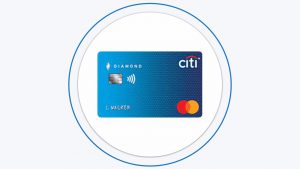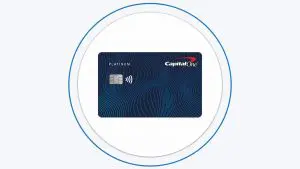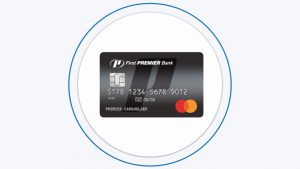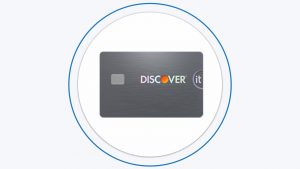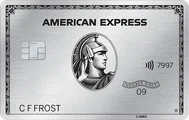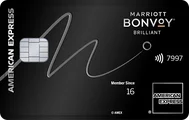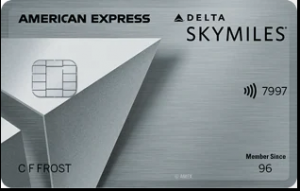Table Of Content
What Is A Secured Card?
A secured card is similar to a traditional credit card, the main difference being that a secured card requires a refundable security deposit. The security deposit typically equals your credit line.
For example, if you put down $300 as your security deposit, your credit line is $300. The security deposit is used as collateral in the chance that the cardholder cannot pay the balance and must default.
Secured cards are known to be a resource for those looking to establish, build, or rebuild credit. While secured cards are easier to qualify for, in comparison to unsecured cards, some issuers set a minimum credit score required for approval.

How Do Secured Cards Build Credit?
Secured credit cards provide a great way to build your credit:
- Report To Credit Bureaus
Most secured credit cards report your activity to all three major credit bureaus each month. This allows your credit score to be updated regularly, showing any progress over time.
Even though the term “”secure”” is in the name, the security is with the card issuer, not the cardholder. Your deposit acts as collateral if you miss a payment.
It’s important to note that missed payments will still be reported to the credit bureaus and can hurt your credit score. However, if you use your card responsibly by paying off your balance in full and on time, you can start building your credit.
- Improve Credit Utilization
The general rule of thumb for spending with a credit card is 10-30% of your credit line. Spending less than the allotted credit line opens the door for higher credit lines down the road.
- Build Payment History
Secured cards build a credit history by showing that the user is capable of making consistent, on-time payments. Having a good credit history is key to establishing or rebuilding your credit score.
Secured Credit Card Pros and Cons
Secured cards have more benefits and uses than building credit. A secured card offers the resources necessary to encourage responsible spending habits and a general understanding of how spending impacts your credit.
Pros | Cons |
|---|---|
Build Credit | High APR |
Financial Discipline | Annual Fee |
Fraud Protection | Security Deposit |
(Low) Potential Rewards
|
- Build Credit
As previously discussed, this is the main benefit of using a secured credit card.
After building your credit, you can apply for better credit cards and enjoy rewards and perks you can't get with a secured card.
Most credit cards for bad credit are secured and allow you to build credit quickly.
- Financial Discipline
Secured cards are a way to learn good spending habits. Users can learn discipline by spending within a budget and paying off their balances.
If you find yourself lacking financial structure, a secured card may be a smart addition to your wallet.
- Fraud Protection
Like most credit cards, secured cards tend to offer protections for their users, such as fraud protection, 0% liability, and sometimes car insurance.
Credit cards in general tend to offer better protection against fraud than the average debit card or bank. Using your secured card as your main source of payment can ensure protection against fraudulent charges.
- (Low) Potential Rewards
Spending with a secured card may be limited due to possibly low credit lines but earning rewards on necessary purchases is better than no earnings. Not all, but some secured cards offer rewards. Finding a secured card that offers rewards or points can offset potential annual fees or simply work as an incentive to use a secured card to build your credit.
Some secured cards offer cash back, such as the Discover It Secured Credit Card and the Business Advantage Unlimited Cash Rewards Secured Credit Card.
- High APR
Secured cards tend to have higher APR rates than unsecured cards. Card issuers foresee a higher risk of default rates in users with limited or bad credit history. Higher APR rates prevent users from borrowing more money, protecting the issuer from financial loss.
This can be difficult for those already on a tight budget or who tend to carry a balance. When spending with a secured card, it’s best not to carry a balance. It is a common misconception that a balance positively impacts credit, as it may hurt your credit score.
- Annual Fee
It is less common for a secured card to require an annual fee, but some do. Much like charging APR, annual fees prevent the credit issuer from losing money.
Annual fees are never fun but can be worth it if you earn the sum or more of the annual fee in rewards. If a secured card doesn’t offer rewards, a card with an annual fee may not be worth it.
- Security Deposit
Secured cards require a security deposit, meaning users are essentially required to borrow their own money or put another way, the card requires a means of collateral.
Security deposits may be a hard ask for potential users depending on their current financial state.
Spending within a low credit line can also be difficult if you intend to keep your credit utilization within the recommended range.
Sign Up for
Our Newsletter
and special member-only perks.
Sign Up for
Our Newsletter
and special member-only perks.
What Do You Need To Get A Secured Card?
The way to get a secured card is through a bank or an issuer and you can apply online, in-person, or over the phone. Like unsecured credit cards, there are certain requirements needed for an application.
- Basic Requirements: To apply, you need to be at least 18 years old and have a valid Social Security Number, ITIN (Individual Taxpayer Identification Number), or passport. Applicants must be U.S. residents with a legal U.S. residential address, including military addresses. You'll also need to provide your full name, contact information, and occasionally your birth date.
- Income: You will be asked to provide your overall annual income along with your monthly rent or mortgage. Though secured cards do not list a required minimum income for acceptance, it is still taken into consideration.
- Credit History: While some secured cards do not require a credit history to gain approval, your issuer will evaluate your credit history or lack thereof. Your credit history can be a cause for rejection, so check for pre-approval and thoroughly review the terms and conditions of the cards you are considering.
- Prepared Security Amount: Before you begin applying for secured cards, go ahead and have your security deposit readily available. If you do not have the funds for a security deposit, you should wait before applying. Choose a card with a security deposit that is feasible for you, and be prepared to deposit upon approval.
How To Choose A Secured Card?
When choosing a secured card, consider your budget, goals for building credit, and what purchases your secured card will be used on. It is important to consider what the card can do for you and how it can improve your lifestyle.
- Credit reporting: When choosing a secured card to build or establish credit, check how many of the three credit bureaus your card issuer reports to. Find a card that reports to all three, given you’re using your card responsibly, will aid in building or establishing credit faster.
- Affordable deposit: At a minimum, many secured cards require a $200 security deposit. If you cannot afford $200, choose a secured card with a lower deposit minimum or that allows custom deposits.
- Upgrade: After using a secured card responsibly, card issuers may have the opportunity to upgrade, or graduate, to an unsecured credit card. Some secured cards have unsecured, tiered versions, while other card issuers may invite you to pre-qualify for an upgrade.
- Grace period: Do you tend to carry a balance? Grace periods are generally offered with traditional credit cards but are less common with secured cards. Unless you pay your balance in full every month, confirm whether or not your card of choice offers a grace period.
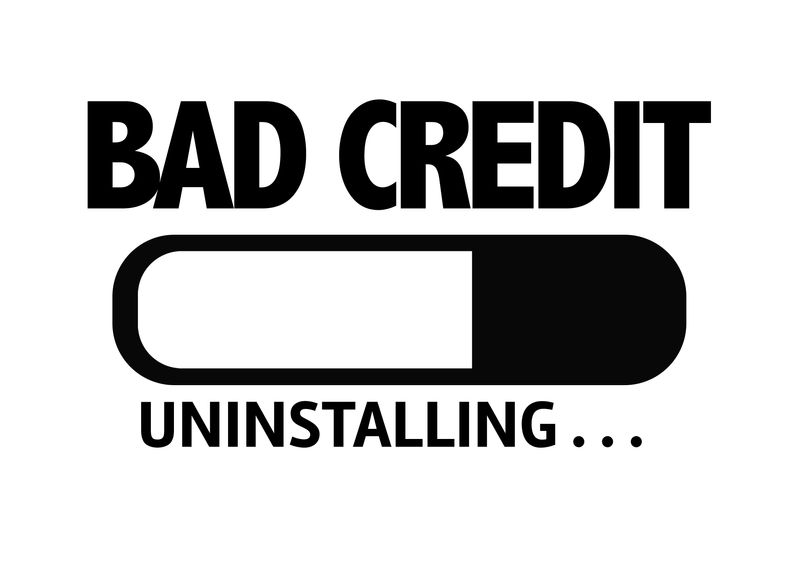
Additional Ways to Build Credit
While secured cards are an effective way to build or establish credit, they are not your only option.
There are many ways to build or establish credit, and sometimes allowing for a credit mix can fast-track your way to a better credit score.
- Credit Building Loans
Credit-building loans are simple; they assist in building credit.
The lender places the loan amount in a secured account, and once the loan is paid in full, you will receive the loan proceeds back. These loans assist with building a good credit history.
- Personal Loans
A personal loan is issued in full and paid back in monthly increments, typically with fixed rates, making it easier for those paying towards the balance.
They can help you build credit by reflecting good payment history and improving your credit mix (different types of credit that impact your score).
- Add An Authorized User
Having a family member or friend add you to their credit card as an authorized user is a way to begin your credit journey.
Becoming an authorized user can improve your credit history quickly and eventually allows the user to graduate to their very own credit card.
Sign Up for
Our Newsletter
and special member-only perks.
Sign Up for
Our Newsletter
and special member-only perks.
FAQs
How much should I put on a secured card?
The security payment you pay towards your secured card credit line should be as much as you can afford. Most secured cards require a deposit of at least $200 but give the option to add more. It’s important to note that your credit line typically equals your security deposit.
Can I be rejected for a security card?
Yes, you can be rejected for a secured card. Some secured cards require a minimum credit score to be approved. You can look into other secured card options or credit-building alternatives if you've been rejected for a secured card.
How to apply for a secured card without a social security number?
If you are looking to apply for a secured card and don’t have a social security number, an individual taxpayer identification number.
If you don’t have an SSN or an ITIN, you may be able to apply with your passport. Just confirm with your bank of choice and check the card’s application requirements.
How to increase the credit line on my secured card?
Increasing the credit line on your secured card depends on the conditions of your specific card. While some cards will allow users to increase their credit line whenever they want, others cut off credit line increases after 35 days. Some cards, such as the Capital One Secured Mastercard, may offer an automatic increase depending on usage.
Does Wells Fargo offer a secured card?
Wells Fargo no longer offers a secured card. Consider applying for a secured card through another bank or card issuer.
You can speak with a Wells Fargo representative or check for pre-approval to see what other credit-building cards you may qualify for through them.
Does Amex offer a secured card?
American Express does not offer a secured credit card. Most Amex credit cards require good to excellent credit scores. You can speak with an Amex representative, or check for pre-approval, to see what other cards you may qualify for.
Does Chase Bank offer a secured card?
Chase Bank does not offer secured cards. You can speak with an Chase representative, or check for pre-approval, to see what other cards you may qualify for. Chase does offer the Chase Freedom Student Credit Card, which does not require a credit score for approval.
Does Bank of America offer a secured card?
Yes, Bank of America offers the Bank of America Secured Credit Card. This card requires a minimum security deposit of $200 but has no annual fees.
While this card can establish, build, and rebuild credit- there is no pre-approval- so you may want to speak with a Bank of America representative before applying.

